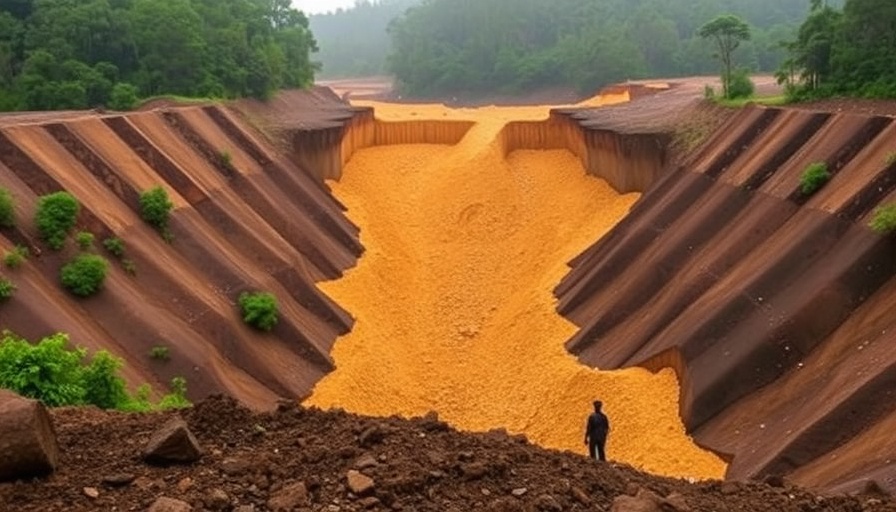
Tragic Collapse in Eastern Congo Highlights Mining Safety Concerns
A catastrophic incident in eastern Democratic Republic of Congo has left at least 10 individuals dead following the collapse of the Luhihi gold mine in South Kivu province. This tragedy, reported by the rebel-appointed governor, Douglas Dunia Masumbuko, raises serious questions about mining safety standards and the larger context of armed conflict in the region.
The Intersection of Mining and Conflict
The region's mining operations have long been entwined with conflicts rooted in historical grievances, particularly surrounding the legacy of Rwanda's 1994 genocide. The M23 rebel group has recently escalated control over eastern Congo’s major cities, deepening the crisis faced by local populations. As the government grapples with instability, the safety of artisanal mining operations like Luhihi remains precarious. Masumbuko linked the mine's collapse to "uncontrolled construction and poor maintenance" in a region plagued by informal mining practices.
Global Gold Market and Local Implications
Congo holds some of the world's richest mineral resources, including gold, which signifies immense potential not just for local economies but for global markets as well. Investors who overlook the human and environmental costs associated with these resources may face reputational risks and financial liabilities. The tragic events remind stakeholders not only of the lucrative prospects but also the severe implications for human rights and safety in supply chains.
Possible Steps Towards Improvement
In the wake of this incident, global business leaders and policymakers must advocate for enhanced mining regulations and better working conditions. International cooperation and investment in safety measures, such as training for local miners and strict oversight of mining operations, are critical. Organizations involved in African trade policies have the opportunity to influence mining practices, advocating for a robust framework that emphasizes worker safety and environmental sustainability.
The Path Forward: Hope Amidst Challenges
Despite the tragic consequences of the mine collapse, there remains a glimmer of hope as recently held peace talks between the M23 and the Congolese government in Qatar hint at potential resolution pathways. Cooperative efforts in diplomacy are essential to ensuring that such tragedies are not repeated and that both the people of Congo and international stakeholders engage in a constructive dialogue aimed at improving mining safety.
As we reflect on this heartbreaking incident, it is imperative for the global community to consider the balance between resource exploitation and ethical responsibility. Ensuring safety in the mining sector, particularly in conflict-affected areas, is crucial for paving a stable future.
 Add Row
Add Row  Add
Add 


Write A Comment